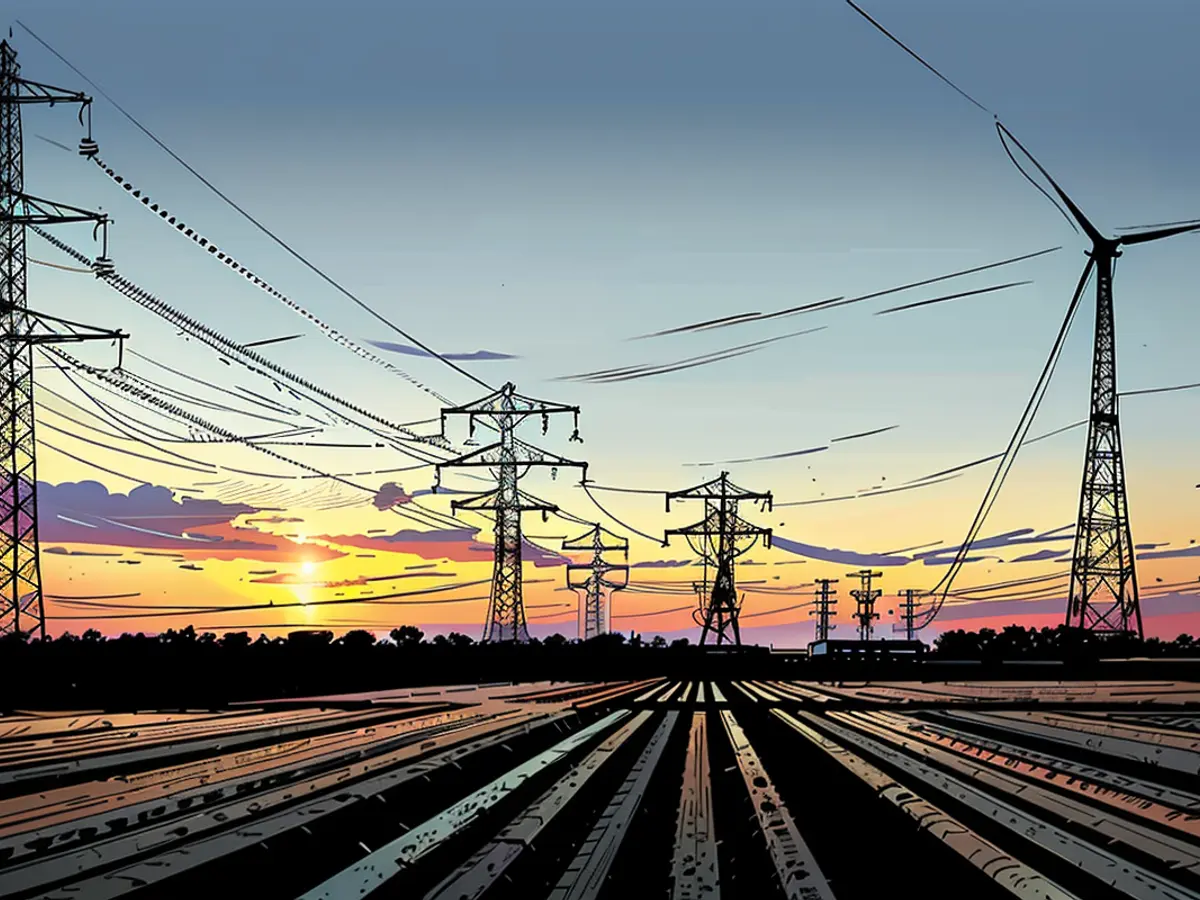Electricity grid expansion to progress faster
To accelerate the Energy Transition, the power grids should be built up faster. The Bundesrat has given the green light for the early expansion of nine power lines. The costs for this are high, but politics promises consumers relief from this.
To further advance the Energy Transition, the power grids should be built up faster. With a legislative amendment, the Bundesrat has given the go-ahead for the early expansion of two power lines that will transport green electricity from northern Germany to the south. Specifically, nine power lines are to be taken into the federal requirement plan and built more quickly.
Exactly when construction can begin depends on the plans of the Federal Network Agency and the transmission network operators. With the Bundestag's decision, construction can begin as soon as possible.
With the now passed amendment, it goes about nine power highways, which are planned as earth cables, explained SPD energy politician Markus Hümpfer in the Bundestag. These are part of the so-called Nord-Ost-Link, which transports electricity from Schleswig-Holstein to Mecklenburg-Vorpommern, and the Rhein-Main-Link. The Rhein-Main-Link is to better transport electricity from Lower Saxony to the south in the future.
The expansion of the lines is expected to cost around 47 billion Euros according to the draft law. In addition, electricity costs for consumers could rise. According to the draft, network fees, which are charged to all electricity customers, will increase by approximately 80 Euros net per year due to the investments.
Green politician Ingrid Nestle sees this effect offset by cost savings elsewhere. "We will all benefit strongly from the network expansion," said Nestle. The increased costs from network fees counteract savings, as there will be fewer energy bottlenecks and the use of "more expensive fossil power plants" will be limited. Most households - especially those with low incomes - will not be affected by the increase, according to her. FDP fraction vice Lukas Köhler also expects that the network expansion will lead to a secure power supply in the long term "at affordable prices".
Beyond the new power lines, the Bundestag should theoretically still deal with further legislative amendments regarding the expansion of renewable energies. Discussions on comprehensive regulations for the implementation of a corresponding EU directive into national law were to take place. However, according to information from the Federal Ministry of Economics, this discussion is postponed to a "later date".
To ensure a smoother transition to renewable energies, the upgraded power grids should prioritize the transmission of green electricity. The amendment allows for the accelerated construction of two power lines, harnessing renewable energies from northern Germany and distributing them to the south.
In tandem, the revamped power grids will contribute to the reduction of our reliance on fossil fuel-based power plants, thereby contributing significantly to our carbon emissions targets.








